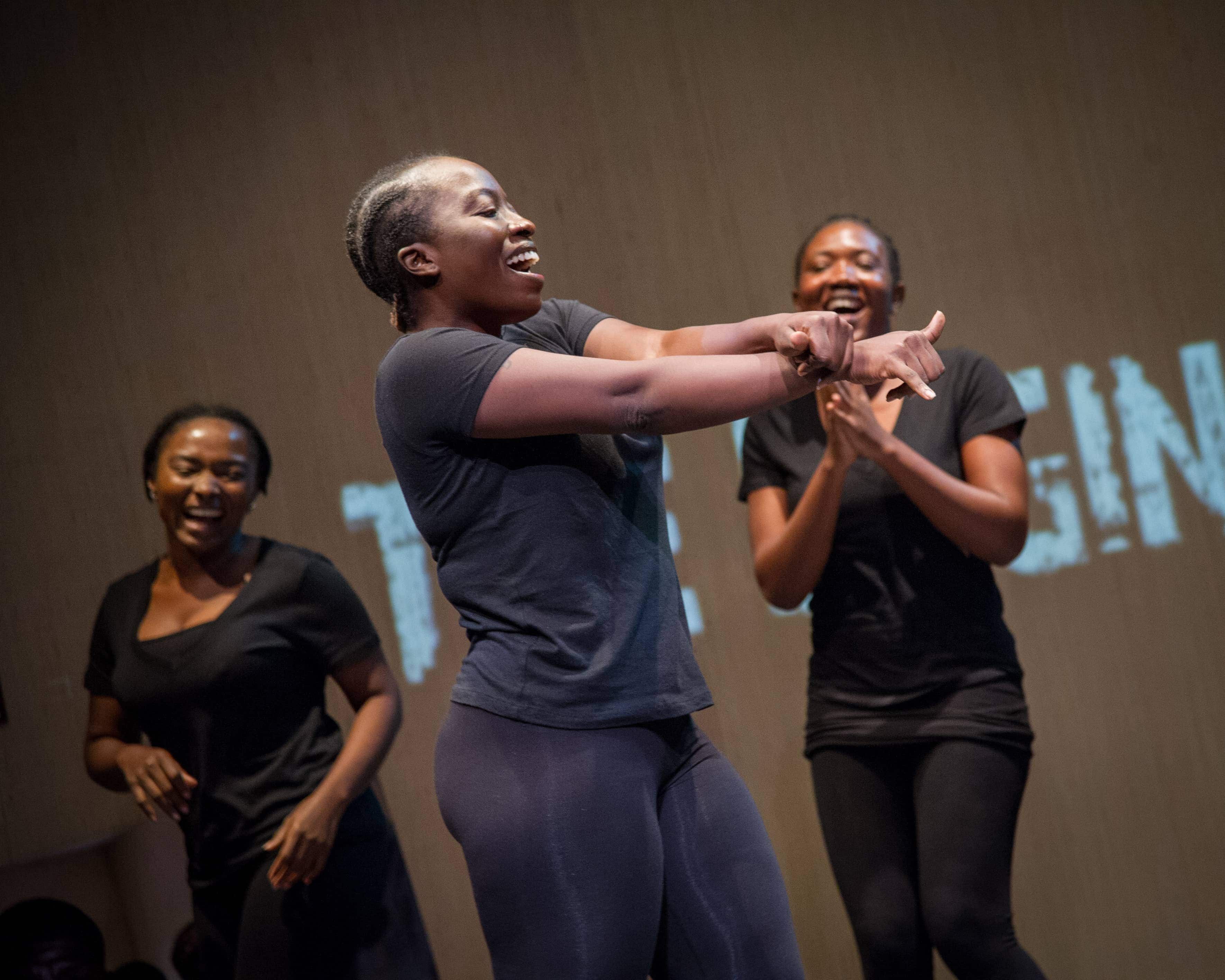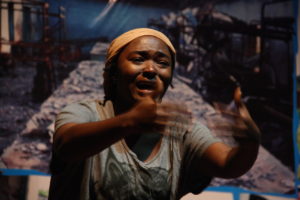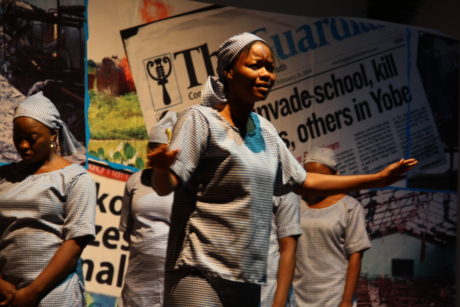One night five years ago, a horror happened in Chibok, North Eastern Nigeria. The Boko Haram—Islamicist terrorists who believe that Western education is evil—abducted 276 girls from the school where they were avidly getting just such an education. The harrowing story of that brutal abduction and punishing aftermath is told in a powerfully poetic theater piece that had its U.S. premiere during the inaugural CrossCurrents festival hosted by the Lab for Global Performance and Politics at Georgetown University.

Written for the stage and directed by Wole Oguntokun, artistic director of Nigeria’s Renegade Theatre, The Chibok Girls: Our Story is based on testimonies of girls who survived the abduction and members of their communities. The voices in the play are seared with fear and sorrow. Here, for instance is one girl’s rendering of the events of that night, in a section called “Welcome to Womanhood,” when men disguised as guards broke into their dormitory:
Just strange men in uniform who looked at us through hooded eyes.
Bearing weapons of all kinds.
And now we knew they were not real soldiers.
I do not know how it came upon us
But we just knew
And we shivered in this knowledge.
There was too much darkness surrounding them
Swirling through their clothing and their gestures
…
They loaded us in the back of the vehicles and started the engines.
Girls screamed. Slaps and kicks rent the air. There were many cocked guns.
And then when we were all seated
One walked down the line of vehicles waving and calling out
I did not know if it was a friendly greeting or a farewell.
“Welcome to womanhood,” he said.
“Girls of Chibok, I greet you.
Welcome to womanhood.”

The sadism implicit in that sinister greeting became manifest as girls were forced to have sex with their fanatic abductors, the “men with dead eyes.”
The insurgents slaughtered some girls’ parents and set fire to houses. Some girls were killed, some were ransomed, some were recruited to be suicide bombers, and some escaped. This is the voice of one who got away:
I jumped into the bushes to my left
And ran. I heard sharp cracks beside me
Whistles past my ears
Branches fell ahead of me
I was told when my family found me after two days
That they were the sounds of bullets passing me by.
I learnt that the bullet you hear is not the one that kills you.
But life thereafter came with a price, as a survivor tells in a section called “Stigmata”:
When I go to the stream, the other girls keep their distance.
I have been marked in an unseen way.
“I am the wife of Boko Haram”
I have been touched by the devil
And it is not a mark that can ever be washed off.
It is a dark glow, a halo that is around my head
I see pity, disgust, and revulsion on the faces of my own people.

The Chibok Girls, which premiered four years ago in Lagos, was performed eloquently on the Gonda Theatre stage by an ensemble of four young women in black leotards (Leelee Byoma, Tobi Igbenoba, Jennifer Osammor, and Meg Otanwa). At times they sang and danced; mostly they delivered Oguntokun’s elegiac text in a declamatory tempo, surrounding each line with a kind of reverential silence, now and then breaking out in heartrending bursts of emotional urgency. They were accompanied by a terrifically in-sync drummer (Dolapo Kodaolu), and Oguntokun himself appeared briefly and scarily as a soldier in camo with a rifle. The paneled backdrop, on which the 20 section titles were projected, was plastered at its sides with documentary photographs and reports of the event from international news media—flat depictions stark contrast to the vivid voices alive before us.
Story after story and stanza after stanza go by with painful poignancy. The unremitting script triggers wrenching mental images. Nothing but the words themselves can convey how breathtaking is this play.
We were children who had learnt to whisper
Our intimate conversations with Death;
Bodies violated by soulless men
While watched by silent gods
Who played board games
As youthful dreams bled into the sand.
Running Time: One hour 20 minutes, with no intermission.
The Chibok Girls: Our Story played May 7, 8, and 9, 2019, presented by Georgetown University’s Lab for Global Performance and Politics as part of its CrossCurrents festival at Davis Performing Arts Center, Gonda Theatre, 37th and O St., N.W., Washington, DC.
Magic Time!: ‘The Chibok Girls: Our Story’ at Georgetown University




